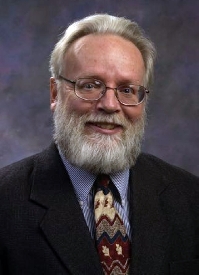University News
Rural IL Perspectives: The Fast-Changing Landscape of State Rural Development
November 15, 2012
Rural Illinois Perspectives by Timothy Collins, Illinois Institute for Rural Affairs Assistant Director
MACOMB, IL — The landscape of state rural development has been changing rapidly. It is an often under-recognized policy area, even in rural states. In urbanized states, rural may virtually disappear from the policy arena.
The message from a recent informal meeting of rural policy experts is clear. Rural advocates need to stress rural-urban connections clearly and firmly.
Political and economic shifts affecting rural areas have been dramatic. Agriculture has changed and consolidated. Manufacturing, where it remains, is highly automated and far less labor intensive. Changes and decline in various economic sectors have had wider impacts. Yet, rural employment has suffered less in the current lackluster economy than in urban and suburban areas.
Demographic shifts of population loss have left many rural areas grayer and perhaps poorer, with shortages in skilled employment and increasingly difficult access to crucial services. Medical staff shortages in some areas are real. Food deserts, where grocery stores are far away, also are real, even in the midst of agricultural plenty.
Larger statewide, as well as local, political winds have buffeted rural communities. Increasingly concentrated urban influence in state legislatures dwarfs rural power in capitals. Rural citizens, increasingly alienated from government, are more suspicious of government and adamant in their opposition to taxes—federal, state and local.
In the gale force headwinds of resistance to change, it is fascinating to note that some states— conservative and liberal leaning alike — are creating and maintaining agencies to foster rural development. These states recognize the importance of rural-urban connections. In addition, social entrepreneurs nourish nonprofit organizations dedicated to keeping rural development out front.
Some of these units operate on a shoestring, while others have relatively good budgets. They are always resource constrained because there is so much need for their work. Sometimes these organizations are anchored in regional universities. Sometimes they are in state government in the legislative or executive branches. Private nonprofits might work out of a more traditional workplace or a home office.
These rural development leaders outside of the Land Grant University system are characterized by their dedication to rural life in its various facets. Their smaller organizations tend to match their personalities and goals, even in a university setting. They may specialize or work on a variety of focus areas. Some conduct research, but with an applied bent. If associated with a university, teaching might be part of the operation. Many of these organizations engage in community development and technical assistance in communities and regions. They rely on collaborations with other agencies and like-minded advocates to jawbone governors, legislators and citizens to recognize how important rural areas are to the larger economy.
Rural policy efforts require thinking, research, communication and collaborative action among stakeholders. Linking of theory, research and action is nothing new. But the risky and uncertain climate today demands organizational agility and synthesizing creative ways of thinking and doing in complex and shifting conditions in areas often considered as low priorities.
Western Illinois University is an Affirmative Action, Equal Opportunity institution. For more information about the Illinois Institute for Rural Affairs, visit www.IIRA.org. For more information, contact Collins toll free at (800) 526-9943 or via email at T-Collins@wiu.edu.
Posted By: University Communications (U-Communications@wiu.edu)
Office of University Communications & Marketing


Connect with us: